Motorcycle Carburetor Problems
Carburetors are designed to mix a small amount of gasoline with a larger amount of air. How complicated can mixing two things be?
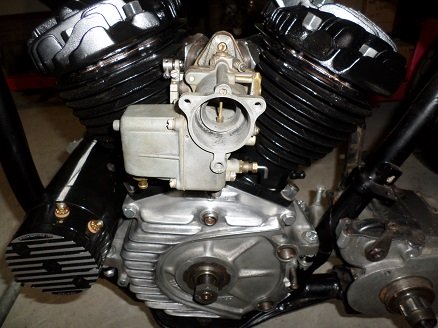
Well, factor in cold starting, idling, part-throttle, wide-open-throttle, then delivering the correct mixture in different climates--and it gets a bit complicated.
Truth is, only in theory are carburetors simple devices.
NOTE: No matter how dialed in your carburetor is, it will not make up for bad ignition, wrong spark plugs, or incorrectly adjusted engine timing. Make sure all of these are in good shape before changing carb settings.
Rich vs Lean Running
Two common problems are an engine either running too lean or too rich.
A lean mixture gives an erratic idle, with tendency to stall when not fully warm.
Too rich a mixture gives an even, rhythmic misfire and a bit black smoke in the exhaust.
A correct idle mixture gives an even idle and colorless exhaust.
********************
Lean Mixture
A lean condition exists when the carburetor is delivering too much air. If there is not enough fuel mixed im, an engine runs lean, which will cause it not to run it's best, and potentially damage the engine.
Typical symptoms of a lean mixture include some or all of the following:
- Lurching acceleration
- Misfires and/or backfires
- Engine stalls easily
- Backfires when throttle is closed (primarily during coast-downs)
- Blueing on chrome exhaust pipes
- White or light grey spark plugs
- White or light grey on end of exhaust pipes
- Poor fuel economy
Fixing A Lean Mixture
Pre-seventies classic bike carburetors will likely have an adjusting screw that regulates the fuel/air mixture in the lower rpm range. Turning this screw clockwise will reduce the amount of air entering the carburetor, and will richen the mixture (refer to your shop manual for correct settings). But before you start changing settings, consider into the following:
If no changes have been made to the bike, and it previously ran well, a lean mixture can sometimes be a leaking intake or exhaust gasket.
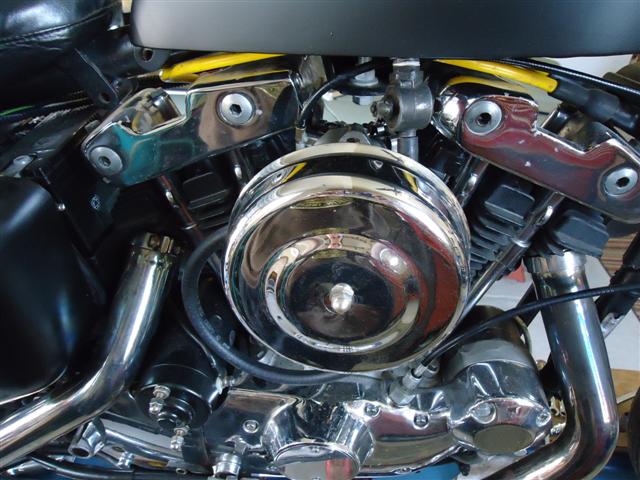
Replacing factory parts such as exhaust systems, air filter systems or replacement carburetors will certainly contribute to a lean mixture.
********************
Rich Mixture
If there is too much fuel mixed with the air, the engine will have a rich condition. This may cause flooding, bogging, and stalling. It also wastes fuel.
Fixing A Rich Mixture
If the fuel level is set too high in the float chamber, a rich mixture will result. Unfortunately, the only way to check this is to remove and disassemble the carb (although some floats can be gotten to by just removing the float bowl).
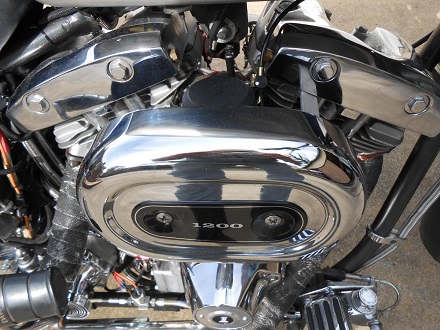
A rich condition can also be caused by a dirty or clogged air filter(s). This is an easy check. Take off the filter and hold it up to the light--you should be able to see light through it.
Also keep in mind that both altitude and humidity effect your engine's performance.
NOTE: Carburetor adjustments should be done with engine at normal operating temperature.
********************
Vacuum Leaks
A vacuum leak will allow an engine to suck air in through a small crevice where it shouldn't, which throws off the gas/air mixture. Check and tighten loose manifold bolts and clamps, as well as carb mounting bolts.
Throttle Shaft Play
Consider this: every time you twist the throttle, the shaft in your carburetor turns. Multiply this by how many times in a single ride you do this, then multiply that by how many rides you do in a year, then multiply that again by how many years old it is.
Throttle shaft bushings wear very slowly, but they do wear. On old motorcycles, this is a common source of vacuum leaks and erratic idle.
********************
The Effects Of Ethanol Gas
Ethanol is used in today's gasoline as an additive, and E10 gasoline today contains roughly 10% ethanol. Ethanol has a shorter shelf and tank life than gasoline, and can begin to break down in as little as three weeks. It also attracts water faster than gasoline.
Ethanol Gas Problems
The ethanol found in pump gasoline is the same type of alcohol that is found in an alcoholic drink, and it works somewhat like a cleaning agent - not good for an older engine. It also increases vapor pressure in gas, which may cause vapor lock in the carburetor.
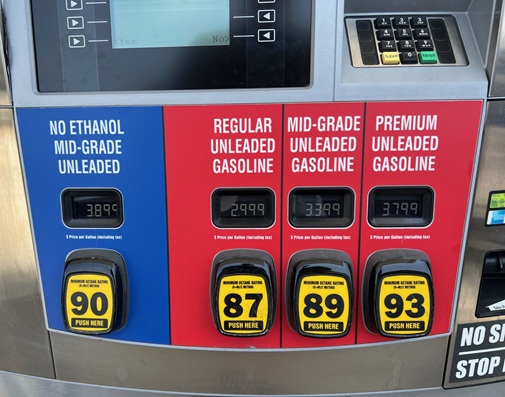
In the past 10 years, non-ethanol gas has seen a surge in popularity. Here in central North Carolina, you can find non-ethanol fairly easily, but it is more expensive than premium blend.
Ethanol gas issues are not so bad with daily transportation vehicles, but with vehicles not driven regularly (old motorcycles) they are problematic.
Fuel System Maintenance
If you store your bike over the winter, untreated fuel may go bad in as little as three months. Longer than that, a fuel system cleaning (gas tank and carburetor) may be needed.
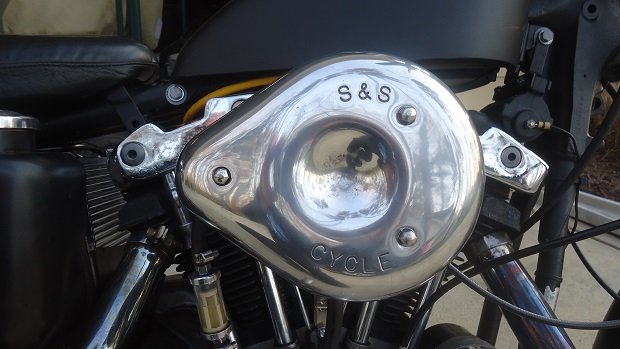
********************
Octane Requirements (Rule of Thumb)
- 80 octane for 8:1 or less compression motors
- 90 octane for 9:1 compression motors
- 100 octane for 10:1 compression motors
********************
Air Filters and Gas Filters
When you have your bike running right, don't forget to run a gas filter, such as this mini glass bowl fuel filter from Milwaukee Twins.
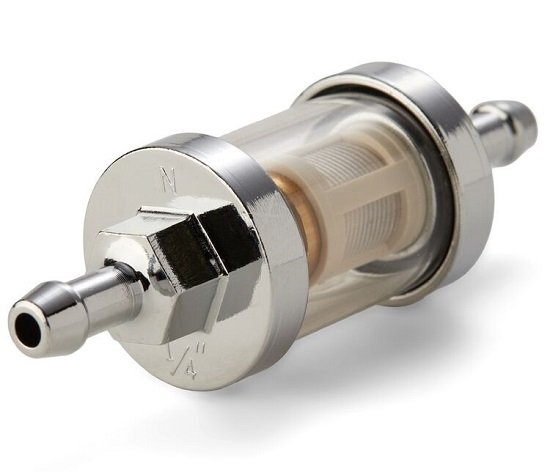
It's equally important to have a good air filter, the bigger the better. And resist the temptation to run a velocity stack. Yes, they're cool looking, but they allow dirt and dust to get into your engine.
******************